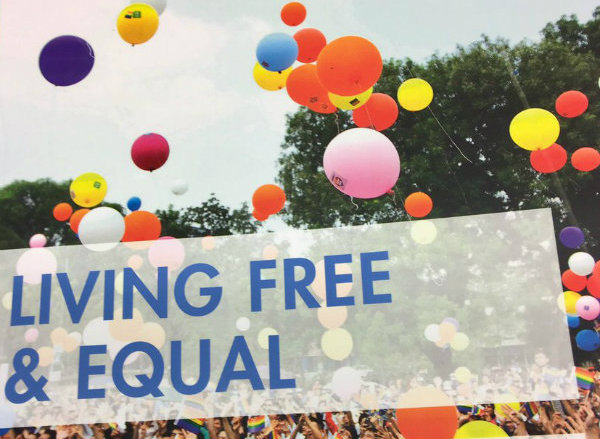How often can you say you’ve attended a ‘historic event’? Not too often, but I think the consultation of – here’s a mouthful – the Independent Expert on Protection against Violence and Discrimination based on Sexual Orientation and Gender Identity (UN IE SOGI) qualifies as one. This is the first time ever that an official has been mandated within the UN system to work on these issues. While it is certainly disconcerting that such an expert is needed, this is our lived reality in the 21st century. All over the world, and let’s be clear about this, no country is immune to discrimination based on a person’s sexual orientation and gender identity.
Over the past decades, LGBTI organisations have gained strength and become more visible and diverse. Access to information on sexuality, sexual health and rights has improved. But at the same time, homosexuality is still punishable by law in 73 countries. Violence against LGBTI people continues to take place on a daily basis. Many (young) people lack access to sexuality education. Everywhere in the world, people who do not conform to the heterosexual norm often have a hard time. They are discriminated against, excluded from society, threatened, persecuted, victims of physical violence.
For years, Hivos has put these issues on the agenda. People should have control over their own bodies, be free to express their sexual orientation and gender identity. This became all too clear on the second day of the consultation, when activists shared their stories and facts from the ground. Behind all the acronyms are human beings who are harassed, abused and even murdered because of who they are and who they love.
Activists have been fighting for years so United Nations’ institutions would finally be given the mandate to work systematically on these issues. After enormous struggles and unprecedented opposition from a block of UN member states, international human rights expert Professor Vitit Muntarbhorn of Chulalongkorn University in Bangkok started his work as UN IE SOGI, which he stressed is “well-grounded on international human rights law and complemented by the Sustainable Development Goals, signed by all states, to leave no one behind.”
He organised an extensive consultation with activists and NGOs, member states of the UN and UN organisations. While sometimes tedious, this was not a bad thing per se because it meant that the political fights surrounding the mandate were kept to a minimum from the start. And the moment his mandate was questioned, this offered the professor the possibility to state clearly, “A crime is a crime. No killings please, no surgery, no torture. States have the responsibility to protect, that is settled.” He argued against generalisations and urged participants to “pluralise the discourse”. His call for dialogue was answered by NGO’s requests to carefully involve the true experts – those outside Geneva who live under the most hostile and difficult circumstances. As Andre du Plessis of the International Lesbian, Gay, Bisexual, Trans and Intersex Association (ILGA) said, “No LGBTI person chooses at birth to be drawn into these geopolitical discussions. We do because we are, quite literally, fighting for our lives and our dignity.”
Keep that in mind.
It is the duty of all states to promote and protect all human rights and fundamental freedoms regardless of their cultural and political systems. This is not a call for new or special rights for special groups of people. It simply requires application of existing laws to all people; it is a call for justice and equal rights for all human beings.




